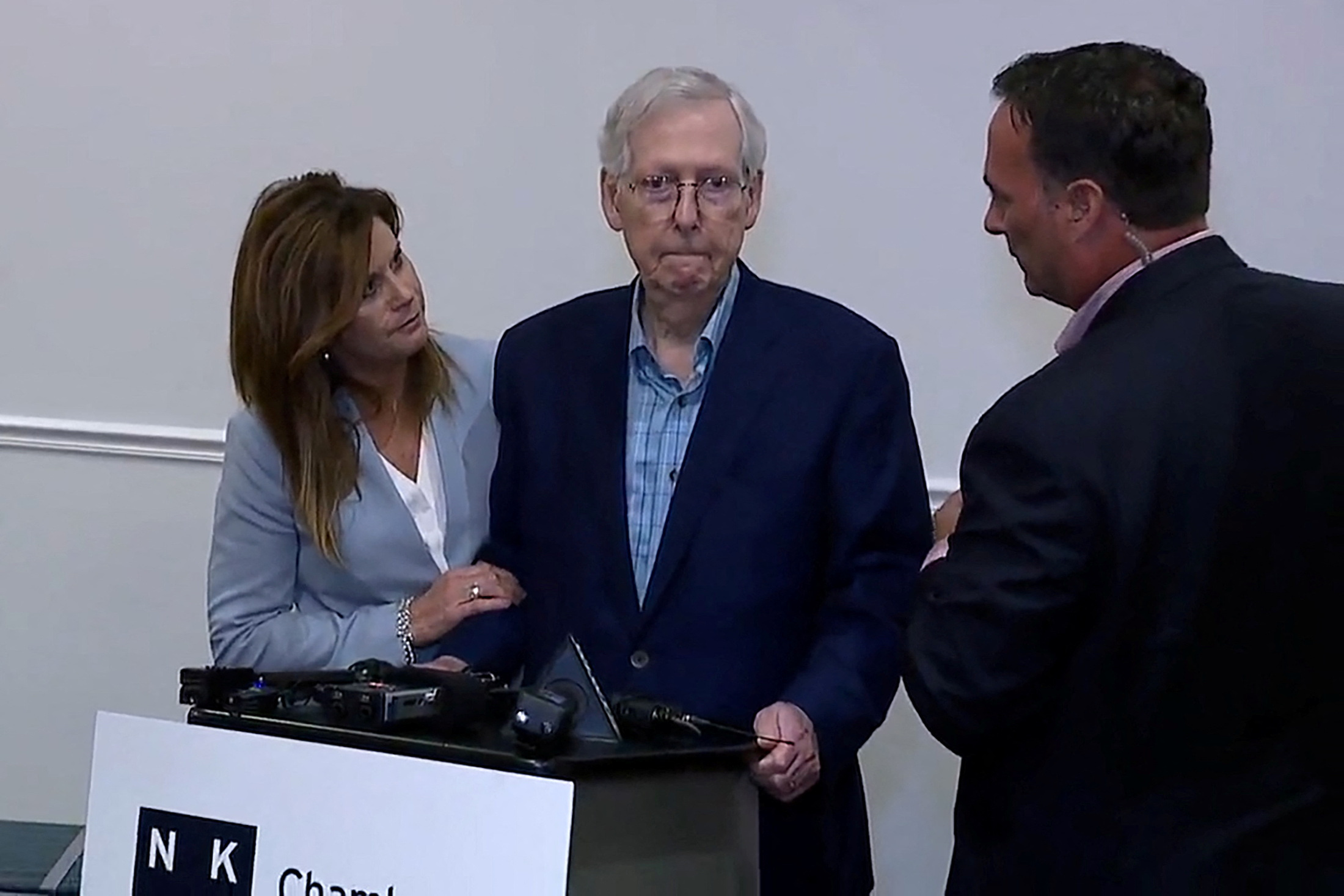
Willie R. Tubbs, FISM News
[elfsight_social_share_buttons id=”1″]
In the 1980s, comedian Dennis Miller once drew laughs and applause from a “Saturday Night Live Audience” when he quipped that then-President Ronald Reagan was too old to be trusted with the most powerful office on the planet.
“In closing, I’d like to say a belated Happy Birthday to the president, who turns sevent- 75?” Miller said bemusedly. “Seventy-five, is that right? Seventy-five, and he has access to the button? You know, my grandfather’s seventy-five, we won’t let him use the remote control for the TV set. This guy woulda been kicked out of Menudo 60 years ago.”
What a difference almost 40 years make.
A 75-year-old would today be at least a half-decade younger than President Joe Biden (80), Senate Minority Leader Mitch McConnell (81), liberal Sen. Dianne Feinstein (90), conservative Sen. Chuck Grassley (89), socialist Sen. Bernie Sanders (81), and liberal Rep. Nancy Pelosi (83).
To put that in perspective, Dan Quayle, who served as vice president under President George H.W. Bush, is 76 as of this writing … and he has been out of office for 30 years.
Senate Majority Leader Chuck Schumer, who the modern “Saturday Night Live” crew is fond of needling for being old and cranky, is 72 and isn’t even among the top 10 oldest members of the Senate.
“What I will say is, right now, the Senate is the most privileged nursing home in the country,” Republican presidential candidate Nikki Haley said Thursday during an appearance on Fox News. “I mean, Mitch McConnell has done some great things, and he deserves credit. But you have to know when to leave.”
This week, McConnell raised national concern when, for the second time in as many months, he froze mid-sentence during a public appearance, but he is hardly alone in appearing to have some struggle mentally completing the tasks for which he was elected.
Democrats and Republicans alike have questioned Feinstein’s fitness to serve after numerous absences and strange comments, and flubs and brain freezes are as much a part of the Biden presidency as inflation and spending.
“No one should feel good about seeing [McConnell freeze] any more than we should feel good about seeing Dianne Feinstein, any more than we should feel good about a lot of what’s happening or seeing Joe Biden’s decline,” Haley said.
McConnell was unable to serve fully for about a month after he tripped and was hospitalized for a concussion and a minor rib fracture. Brian Monahan, the attending physician for Congress, attributed McConnell’s issues to his recovery.
“I have informed Leader McConnell that he is medically clear to continue with his schedule as planned, Monahan said in a statement. “Occasional lightheadedness is not uncommon in concussion recovery and can also be expected as a result of dehydration.”
Haley, who at 51 is young enough to be any of the aforementioned politician’s child, has previously drawn criticism for championing age limits for federal office.
She reiterated that thought on Fox News.
“[These] people are making decisions on our national security,” Haley said. “They’re making decisions on our economy, on the border. We need to know they’re at the top of their game. You can’t say that right now, looking at Congress.”
The idea that there is an age after which the risk outweighs the reward for allowing a person to serve in Congress or as president.
Jack Holmes of Esquire has a far more extensive exploration of the case for age limits. In this piece, he posits that an overabundance of senior citizens in the halls of power is not only atypical – Holmes lists myriad government jobs with mandatory retirement ages – but also unfair.
“It’s not that older folks, who make up a significant chunk of the American population, shouldn’t be properly represented in the halls of power,” Holmes writes. “It’s that they’re way overrepresented, and it is bending the trajectory of our national life. The American story has been crowded out by the story of the baby-boomer generation.”
In January 2022, when only Biden had a well-documented case of strange statements and behavior, a YouGov poll revealed that 58 percent of Americans supported age limits for elected officials.
People who favored an age limit were split, however, on the precise cutoff. Thirty-nine percent of those respondents said 70 was the appropriate max age while 24 percent said 60 and 23 percent said 80.
“Our analysis found that if senators over 60 were barred from holding office, 71% of current senators would be ineligible to serve,” the YouGov team reported. “If the limit were 70, 30% would be ineligible. If it were 80, 6% would be ineligible.”
Importantly, there is no provision in the Constitution for age maxes, which means changing the system would involve an amendment, which in turn would require people who would become ineligible to serve and those with designs on making a career of being in office to vote to limit their own current and potential power.
The likelihood of two-thirds of both chambers of Congress agreeing to such a change is remote, and that means the most practical way for Americans to break the trend will be to vote younger people into office.
It remains to be seen whether the latter becomes a reality.
